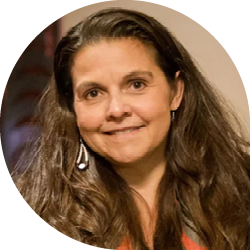APA.org.......APA Style.......APA Services.......Divisions

Stephanie Fryberg, PhD
Professor of Psychology,
Northwestern University
Stephanie A. Fryberg is the James E Johnson Professor of Psychology and the founding Director of the Research for Indigenous Social Action and Equity Center at Northwestern University. Her primary research focuses on how social representations of race, culture, and social class influence the development of self, psychological well-being, and educational attainment; and on designing interventions that reconfigure educational spaces to improve outcomes for racial minority and low-income students. Dr. Fryberg served as president of the Society for the Psychological Study of Social Issues (APA Division 9) and was elected to the American Academy of Arts and Sciences.
Resisting Indigenous Omission, Developing New Narratives & Building Indigenous Futures
Friday, August 9
9:00-9:50 a.m. PDT
Seattle Convention Center, Arch Building,
Ballroom 6BC
In U.S. cultural imagination, contemporary Indigenous Peoples are largely omitted from the public conscience. Indigenous Americans in K-12 public education, for example, are primarily portrayed in pre-1900’s contexts and in media, less than .5% of representations include contemporary Indigenous Peoples. Utilizing experiments and national surveys, we demonstrate that Indigenous representations (or lack thereof) lead to prejudice and discrimination, and impact how Indigenous Peoples feel about themselves. Specifically, we show that recognizing Indigenous omission shapes global attitudes towards Indigenous Peoples, as well as attitudes towards specific issues, including the use of redface and apathy towards Murdered and Missing Indigenous Women and Girls. We further illustrate that sensitivity to Indigenous omission adversely impacts Indigenous Peoples’ wellbeing, but also galvanizes civic engagement. By making visible the pernicious consequences of omission and highlighting Indigenous agency and resistance to omission, we illuminate a path towards creating a more equitable future for Indigenous Peoples.
American Psychological Association
750 First St. NE, Washington, DC 20002

